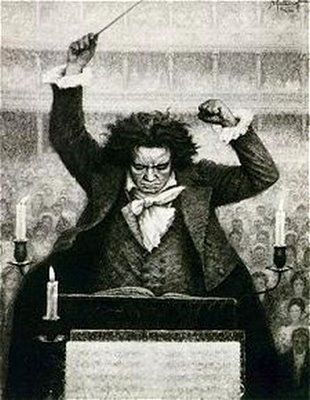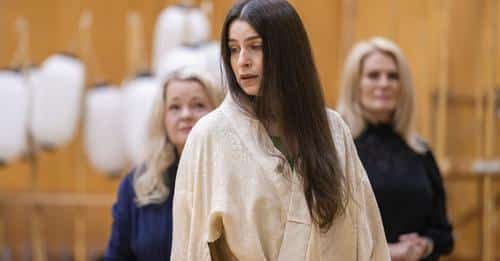Parliament debates ‘the damage done to classical music’
NewsMessage from the composer James MacMillan:
An Adjournment Debate has been scheduled today for Parliament on funding and support for classical music. I was asked for a quote by BASCA:
“The damage being done to classical music by people who should know better – at the BBC and the Arts Council – could impact disastrously on the musical culture of this country in the coming years. Musicians have been nurtured by these organisations over the years and the UK has earned an enviable international reputation for its music as a result. To see these erstwhile allies of culture now turn on us for short term mean-mindedness or ideological prejudice is a body blow for British music. Those responsible need to step back and reassess why they have had any involvement in music and culture in their lives. Let them see the bigger picture – British music is a success story. Please don’t ruin it.”






Wow! Well said. Absolutely to the point. Well said indeed.
“To see these erstwhile allies of culture now turn on us for short term mean-mindedness or ideological prejudice is a body blow….”
You mean, like academia and all the other institutions taken over/controlled by the Left? Those on the public purse, in short.
The average MP would not know Bach from Buxtehude and neither would most of their constituents. The problem is a lack of education in schools which only do Pop. I recall my old school used to play the Ode to Joy at Assembly and the music teacher made everyone in the class listen to Ma Vlast and other classical stuff, they all hated it being brain washed by Motorhead, U2 etc except me!
Well said!
Text is here.
https://hansard.parliament.uk/commons/2023-03-29/debates/15EB620C-BD12-404F-ADF4-7878C153D0EA/ClassicalMusicFundingAndSupport
Well said Sir James!
Well put. Kick out those who want it otherwise.
Welcome as this may be, there is little hope of getting anything done through reports, pleas, complaints or web postings. The BBC is too self-righteously arrogant to worry about these.
At present, they are not answerable to anyone else. We are expected to pay the huge licence fee to enable them to do what they like. There are no established and measurable objectives and criteria to which they must measure up.
As a condition of the BBC’s right to benefit from a licence fee, the government should set up a standing cross-party Broadcasting Standards Commission, which should define a template for each station, defining the programmes and content. Any variations of these should be negotiatied with the Commission, which should ensure that the proposed changes would not affect the overall balance as defined in the template.
This would not in any way compromise the neutrality of the BBC with respect to political balance in their coverage of news and opinion. It would just mean an end to its self-defined practice of chasing bums on seats as its sole commitment, which it appears to be doing at present.
I would suggest that there is also a case for splitting the BBC into an Entertainment organisation, run as a commercial business, and a Public Service organisation, concentrating on news, the fine arts and educational content. The commercial business should be paid for through a subscription fee, just like Netflix and Sky. The Public Service organisation should be supported on the licence fee. With no astronomical fees paid to ‘celebs’, the licence fee would easily cover its costs.
A related issue: An ongoing (or just incipient) public investigation in Sweden concerns the public TV and radio assignment, which is to undergo audit and renewal in the current term of office. The public TV (Sveriges Television) runs too many entertainment programs that compete on unfair terms with private TV channels. Currently, sending of the “Eurovision” competition, or of vulgar entertainment of the kind of “Drag Race Sverige”, or of American TV series, or of radio programs (each with their own editorial office) in over 20 different “exotic” languages is funded by taxpayer’s money.
I’m afraid this will have to wait until we are rid of the current right-wing government, as they have the Brexit Broadcasting Corporation exactly where they want it.
Better still, just abolish the licence fee. Such a funding model might have had some logic to it at a time when you could count the number of broadcasters on the fingers of one hand and the costs of running any kind of serious broadcasting enterprise were sky high, but the broadcasting market has long since become livelier and more competitive (whilst broadcasting properly is still an expensive business, the barriers to entry are not so high as to justify the continued existence of the licence fee). The BBC can fund itself through advertising, commercial trading (e.g.: broadcast licensing deals; making iPlayer a subscription service), philanthropy (i.e.: the BBC Singers and orchestras should be allowed to seek sponsorship and initiate “Friends” schemes), and competitive grants (i.e.: the BBC should be expected to apply for local/national government funding for specific projects on the same terms as other organisations/institutions, rather than receiving a blank cheque from every household that wants to watch live television).
The so-called “public service” provision of the BBC is propaganda, not journalism, and it is absurd for it to continue to be funded by what is essentially a poll tax.
Cutting grants to WNO and Glyndebourne touring means Merseyside no longer gets opera. Tate Liverpool is shutting until 2025 for renovations. If that’s levelling up, I dread to think what standing still would mean…
‘Ideological prejudice’. Read those words carefully. I hope it’s become very clear what ideological egalitarianism actually means. It’s the decimation of our culture and our jobs because they are perceived as elitist.
Strongly agree with what you say, Bishop, but forgive me for one small caveat. It’s that ‘decimation’ means reducing by ten per cent. The BBC had already achieved that in the 1980s!
Audiences are created by giving access to the Arts. If classical music were the sound track to computer games or replaced the pop pumped into shops, it would become more familiar and hopefully counteract the prejudice against it.
Curious minds have to be developed and closed ones discouraged, somewhat similar to sneakily introducing different vegetables to children.
‘A’ level and GCSE music exams are fast disappearing, even in grammar schools, along with the specialist teachers, with only B tech and Performing Arts on offer.
Music should be for everyone. I recall my secondary school daily assemblies where 2,000 girls sat in silence and listened to a couple of minutes of music, before singing a hymn and the Lord’s prayer,[ the Head of music had composed the melody].
One day it was l’Apres-midi d’un faune by Debussy. In the English lesson later that day one girl asked the teacher what the music was, because she liked it. Said teacher apologised for her French pronunciation, but told us. The point
being, that she knew, the girl wasn’t embarrassed to ask, no one thought it elitist or posh either!
A society that downgrades the Arts downgrades itself.
Ideally, yes, but it has been pointed out before that the idea of sitting quietly and listening with a degree of concentration to a piece of music that is not fronted by a singer or a celebrity, is becoming alien. In my experience, many younger people, and some not so young, simply do not understand the appeal of music that relies solely on structure, melody, harmony, counterpoint and rhythm (or, before someone points it out, the absence of).
I don’t see many books on trains or buses, either.